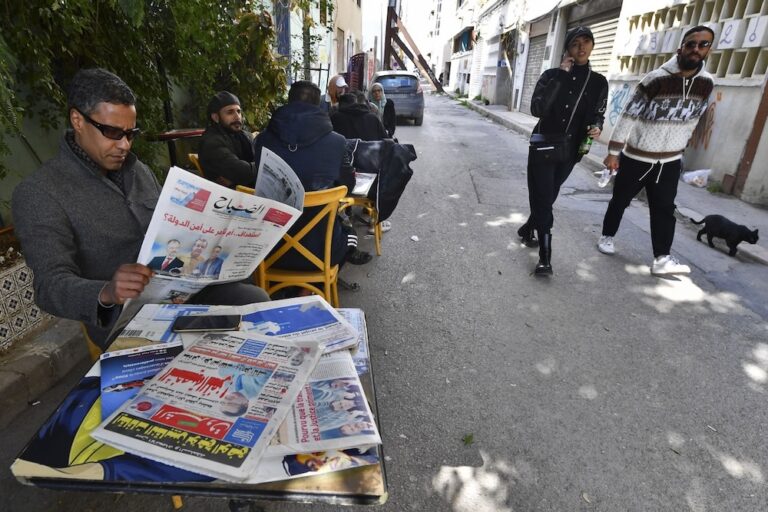(CPJ/IFEX) – The following is 23 September 2008 CPJ press release: The Smiling Oppressor A CPJ special report: Tunisia offers a warm embrace to its friends internationally. At home, it silences critics with a vengeance. New York, September 23, 2008 – Tunisia promotes itself as a progressive nation that protects human rights, but a CPJ […]
(CPJ/IFEX) – The following is 23 September 2008 CPJ press release:
The Smiling Oppressor
A CPJ special report: Tunisia offers a warm embrace to its friends internationally. At home, it silences critics with a vengeance.
New York, September 23, 2008 – Tunisia promotes itself as a progressive nation that protects human rights, but a CPJ investigation has found that it aggressively silences journalists and others who challenge the policies of President Zine El Abidine Ben Ali. In a new report, “The Smiling Oppressor,” CPJ has found journalists subject to routine imprisonment, assault, harassment, and censorship.
Ben Ali’s administration enjoys close ties with Western governments, which have been largely silent about the country’s press freedom record. But CPJ’s investigation found that Tunisia falls well short of internationally accepted standards for free expression.
Ben Ali’s government imposes broad restrictions on news coverage – banning, for example, coverage that could be construed as “offending the president” – while it tightly regulates the licensing of print and broadcast media. Licenses are doled out to government allies and denied to potentially critical news outlets, CPJ found. Critical journalists who turn to the Internet or small opposition newspapers have been harassed by security agents, subject to assault, and jailed. Tunisia, along with Morocco, leads the Arab world in jailing journalists.
“Known across the world for its stunning beaches and tourist locales, Tunisia quietly operates a police state at home,” writes Joel Campagna, the author of CPJ’s report. “The print press does not criticize the president and is largely paralyzed by self-censorship. The few critical voices who do write on the Internet, for foreign publications, and low-circulation opposition weeklies are regularly harassed and marginalized by the Tunisian authorities.
The report is available online ( http://www.cpj.org/smiling/ ) and will appear in the coming edition of CPJ’s magazine Dangerous Assignments.
CPJ is a New York-based, independent, nonprofit organization that works to safeguard press freedom worldwide. For more information, visit http://www.cpj.org.


